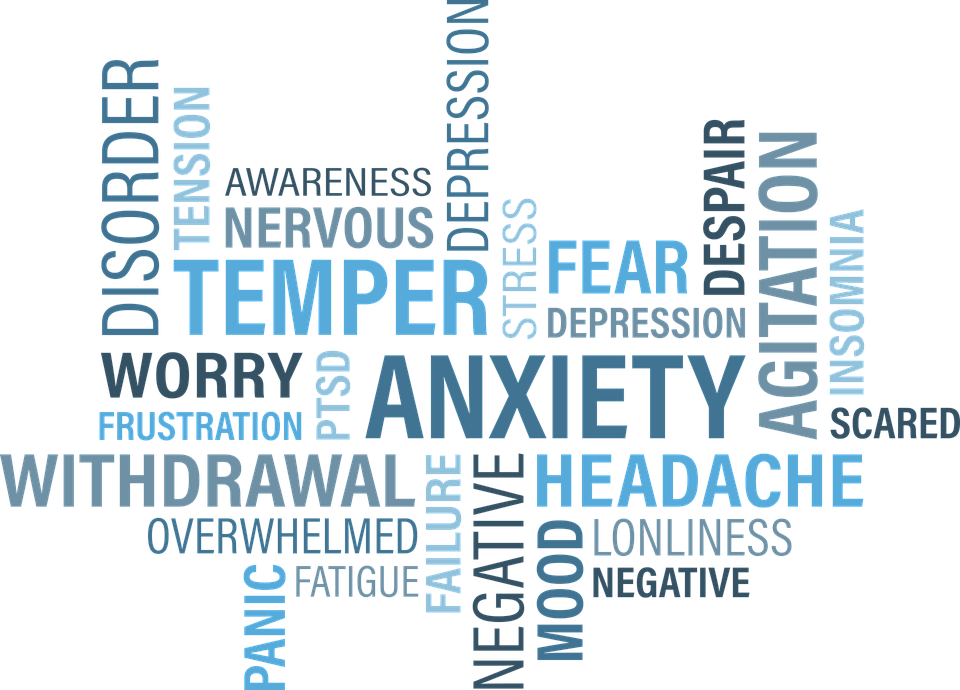
This past weekend, my wife Dory and I stayed up till the wee hours of the morning talking about the effect this pandemic, the stresses of our jobs and the effect that this is having on our lives and our mental health. Whether you are a stagehand out of work, or a student separated from your classmates or a front line worker dealing directly with the effects of this pandemic, these past 10 months have have been hard on everyone and has emphasized the importance of not just taking care of your physical well being, but of your mental well being as well. I see it first hand on a daily basis in me, in my kids and family and in many of the people I talk to through the course of my day. But the other thing that has been brought into focus is that the need to take care of your mental health did not start with COVID-19 and will not go away once life starts to return to what we remember as normal.
Because of the extreme impact that COVID-19 has had globally, it has highlighted the depression, anxiety and fears that many of us deal with on a daily basis and in many cases have brought them front and center in our lives. Workers in Entertainment and the Arts dealt with these issues head on and due to the unique aspects of the sector, often face these issues alone. According to a study out of Australia, over one third of artists and more than 25% of industry support workers reported mental health problems. These problems were often as a result of bullying, sexual abuse, long and unrewarding working hours, lack of sleep and a lack of appreciation for years of commitment, while a report out of the UK, showed over 90% of people working off screen in Film and TV experienced some sort of mental health issues, much worse then the country wide workplace average of 65%. While we lack the industry wide study here in Canada, it would come as a surprise to no one to see that the numbers are similar here as well.
Now add to this 10 months and counting of an entire sector being shut down with no definitive return to work date and we start to enter a crisis situation. COVID-19, with its effects on people’s finances, fears of getting the virus, shifting to a new work environment and the feeling of isolation pile on top of these other issues and now many can’t figure out which way is up and feel completely overwhelmed. That’s where I ended up this past weekend and I know I am not alone in feeling this way in my household, in my industry or across this country. My talking about it didn’t solve all of my problems or ease all my anxieties, but by voicing them, just talking about them knowing someone is listening, allowed some of that pressure to burn off just a little bit and has since made facing the last few days a little less daunting for me.

Not all of us are lucky enough to have that partner to talk to and for many of us talking to a partner is simply not enough. That’s OK. We still still need to find someone to listen and when needed someone to help guide us through our personal darkness. There are so many ways to start the conversation: Friends and family members can lend you that initial ear. Talking to your doctor is an important step to help find the right person to talk to. The Government of Canada has set up Wellness Together Canada to help connect people with support for mental health and substance use. The AFC has set up Designated Sharing Time which meets every two weeks which is a virtual support drop in and “is a virtual meeting space to talk, vent, problem-solve, laugh, collaborate, cry, and feel the strength of others”. Local 58 members have our Employee Assistance program through Morneau Shepell which you can access online or through their MyEAP app as well as coverage under our benefits package for mental health. Taking that first step is a huge one, and one many of us aren’t willing to admit we need to take. Some won’t know how to take this step so we also need to reach out to those who need someone to talk to as often reaching out to lend an ear can help someone who is suffering in silence.

So we can debate whether Bell Let’s Talk day is a good deed or just good PR, but the overall effect of it, or of celebrities talking about their struggles, or of blog posts like this (I hope) is the important part. Talking about how you’re feeling is a critical first step to better overall mental health. Removing the stigma, understanding that it’s ok to feel anxious, depressed or alone will only help people with their overall mental well-being.
